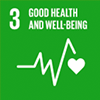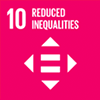World Mental Health Day, 10 October: Access to Services – Mental Health in Catastrophes and Emergencies
World Mental Health Day (10 October) this year focuses on access to mental health in humanitarian emergencies and disasters. Earthquakes, floods, conflicts, epidemics, and forced displacement lead not only to physical injuries but also to increased psychosocial impacts such as anxiety, trauma responses, and grief. In this context, the campaign aims to highlight the principles of early psychosocial support, psychological first aid, continuity of care, and equitable access.
In emergencies, almost everyone may experience some degree of psychological distress; particularly in conflict settings, one in five people may have a mental disorder such as depression, anxiety, or post-traumatic stress disorder. This shows that responses should not be limited to specialist, clinic-based interventions; a community-based and multidisciplinary response must be activated swiftly. Coordination among primary health care, social work, education, local authorities, and civil society reduces barriers to access (language, cost, stigma, lack of information) and improves long-term outcomes.
On the ground, the first layer of support is often Psychological First Aid (PFA). PFA involves creating a safe and respectful environment, listening without pressure, facilitating access to basic needs and accurate information, making appropriate referrals, and protecting from re-traumatization. It can be delivered by trained non-specialists and aims to support the person’s functioning and self-efficacy. PFA is not long-term therapy in itself; it serves as a bridge to clinical care when needed.
At the institutional level, the IASC Guidelines on Mental Health and Psychosocial Support in Emergency Settings provide a core reference framework. The guidelines define minimum, multi-sectoral interventions that can be implemented immediately after an emergency: safe information sharing, strengthening community supports, functional referral pathways, reducing protection risks, and integrating mental health into basic health services. Rather than a “one size fits all” model, this approach recommends stepped care adapted to the local context.
Mental Health in Disasters and Emergencies: Five Things Worth Knowing
-
Psychological reactions exist on a spectrum.
After earthquakes, floods, conflict, or epidemics, sleep problems, startle response, irritability, guilt, intense sadness, and concentration difficulties are common and understandable reactions. Many ease over time; what matters is their intensity and impact on daily functioning.
-
Language can reduce—or fuel—stigma.
Labeling terms such as “crazy,” “panicking,” or “weak” hinder access to help. Person-centred, non-judgmental wording—such as “I’m going through a difficult period,” “I’m experiencing feelings that are hard to cope with”—makes a difference. Confidentiality and informed consent are fundamental to informative communication.
-
What PFA is—and isn’t.
Mental health and psychosocial support provide a stepped continuum from self-care and peer support to primary care and specialist treatment. Psychological First Aid (PFA) is humane, practical, and non-intrusive early support—the starting point of this continuum; it does not replace therapy. Be mindful that online misinformation can be widespread; choose reliable sources.
-
Vulnerabilities and strengths coexist.
Children, older adults, people with disabilities, displaced persons, caregivers, and those with chronic illnesses may be at higher risk. At the same time, family/neighbourhood solidarity, cultural coping repertoires, faith/rituals, and activities such as arts, play, and sports are protective strengths that support recovery.
-
When to consider professional help?
If symptoms persist beyond 2–4 weeks, if daily functioning (work/school/relationships) is markedly impaired, if there is escalating substance use, thoughts of harming oneself or others, or confusion about time/place/person, a professional assessment is recommended.
Brief Notes (Myth/Fact)
“Strong people don’t ask for help.” → Fact: Asking for help is a sign of strength.
“Everyone who experiences trauma develops a permanent disorder.” → Fact: Many people recover with appropriate support.
“Only specialists can provide support.” → Fact: Trained peers/laypersons are valuable first contacts and bridges to care when needed.Note:
In an immediate safety risk, call 112.







.jpg)
.jpg)
.jpg)
.jpg)
.jpg)
.jpg)
.jpg)
.jpg)
.jpg)
.jpg)
